Betsey Emerick, Kris Reynolds, and Rich Selinger – Presiding Fellows
We departed the Sarova Hill Game Lodge at 7:15 am this morning and headed to a tour of the BIDCO Land O Lakes Milling Facility. On the way to the facility, we stopped several times to check out the wildlife along the road.
We arrived around 8:00 am and were pleasantly surprised when we were greeted by Dan Hennessy, CEO of BIDCO Land O’Lakes. Originally from Minneapolis, Hennessy now resides in South Africa with his family. We were pleased he was able to spend a few minutes with us talking about the facility and answering our questions. Jesse Greene, the Operations Lead for the facility and originally from Texas, then spent time with us answering questions.
Mugo was our tour guide for the next hour. He took us through all five levels of the facility and explained the process. We were all disappointed we were not allowed to take pictures inside of the mill.
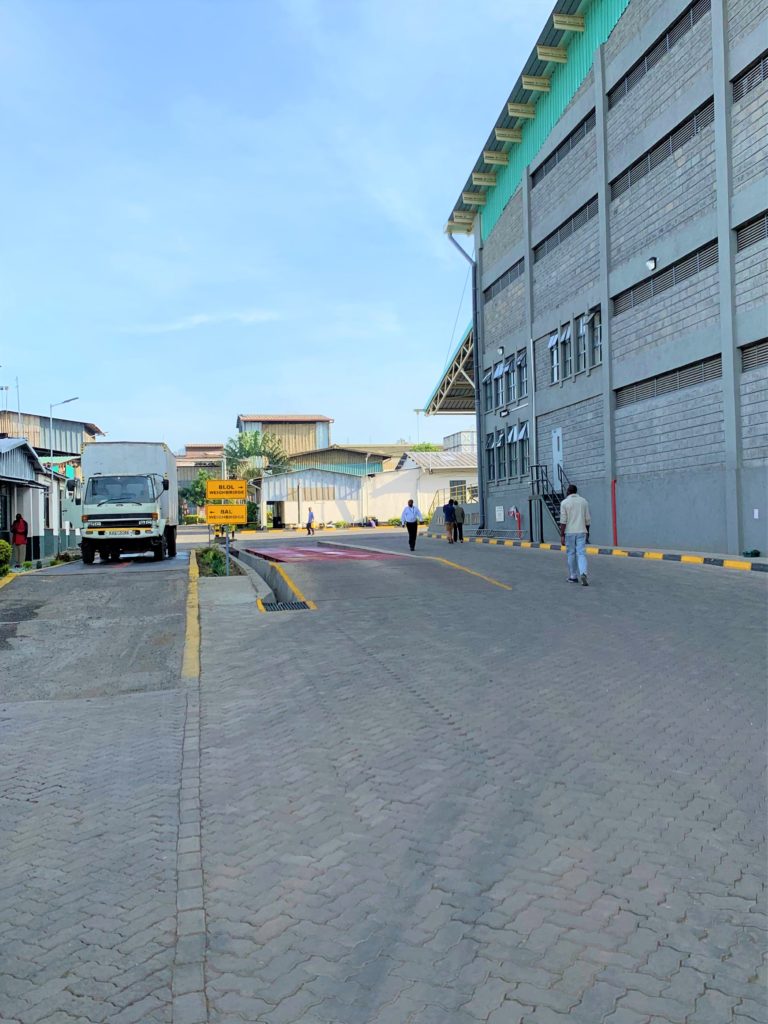
Opened in December of 2019, the entire facility was immaculate and state of the art. BIDCO Land O’ Lakes employs 50-55 people and sells approximately 2,500 tons of feed per month. The capacity for the brand new facility is 7,500 tons per month. The company is excited to work with the local farmers and to help bring US technology to Kenya. Their two main markets are dairy and poultry, with dairy being 70% of their markets. Aflatoxin was originally a big issue for them; however, their rejection rate has dropped from 40% to 5%. Great job, BIDCO Land O’ Lakes!
The group picked up Jason Odigo en route to their first small farm visit of the week. The group was hosted at this farm by Major Leitich; a retired banker turned full-time farmer.
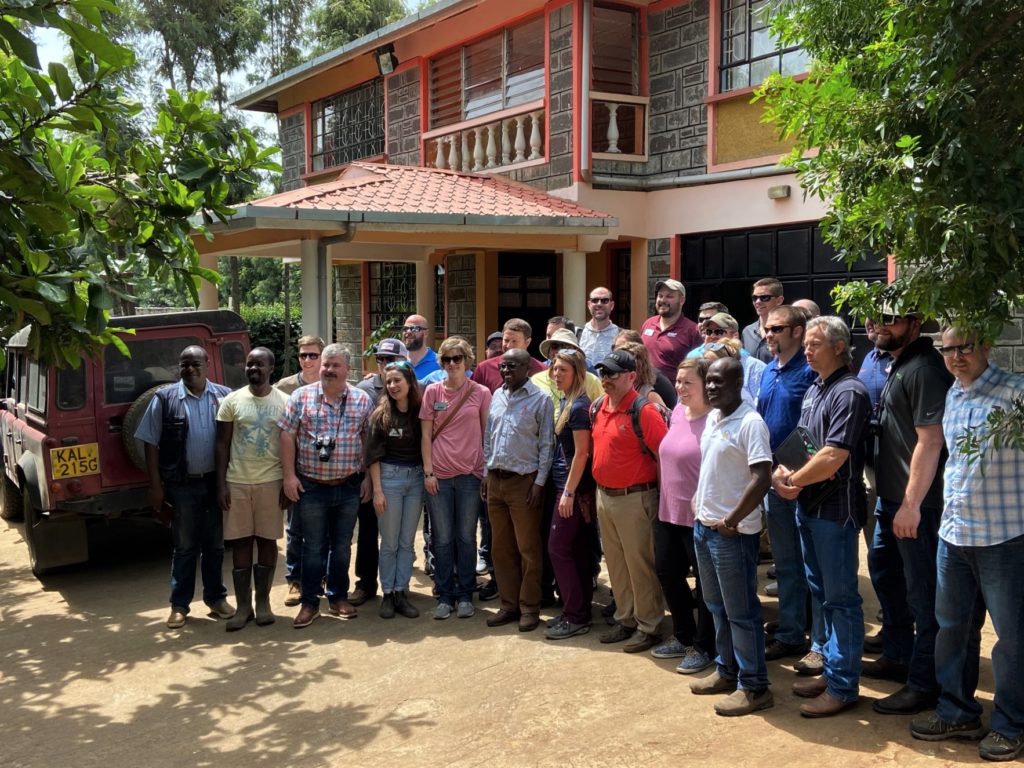
Leitich and his sons manage a 3-acre farm that sustainably grows vegetables and fruits, as well as a fully operational dairy.
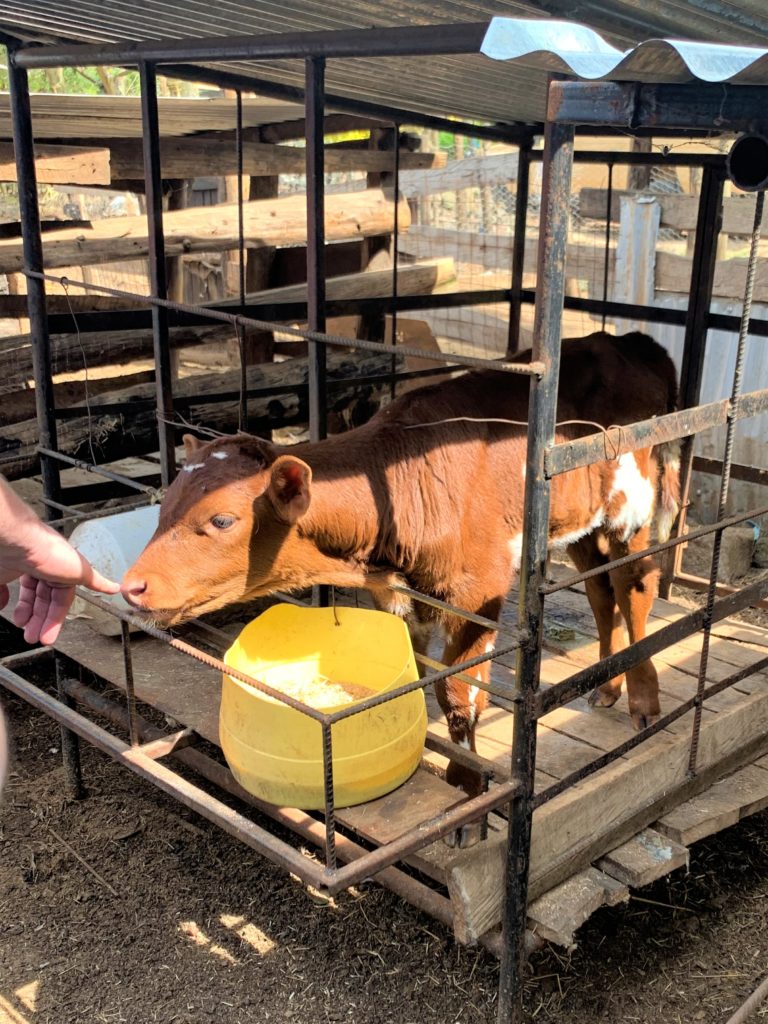
Utilizing new feedstocks, they have been able to increase productivity in their herd. The farm utilizes a waste digester that both helps to manage waste and provides a natural gas source for the home to utilize for cooking and other needs. The size and scope of this small farm is considered large by local standards of agricultural productivity.
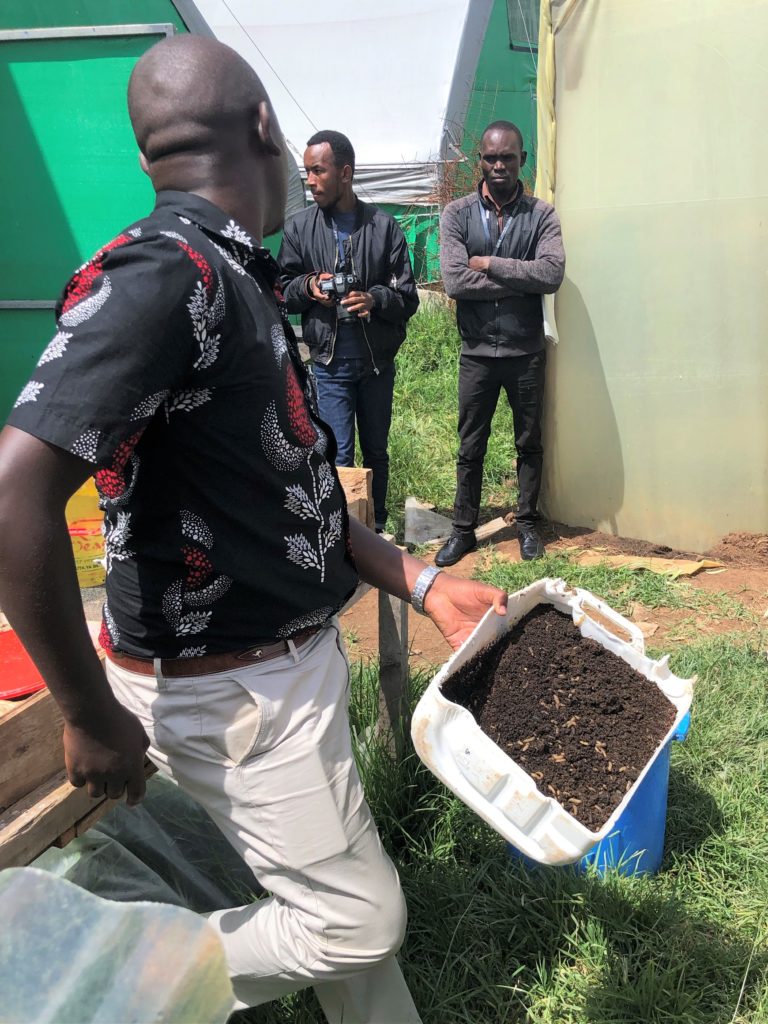
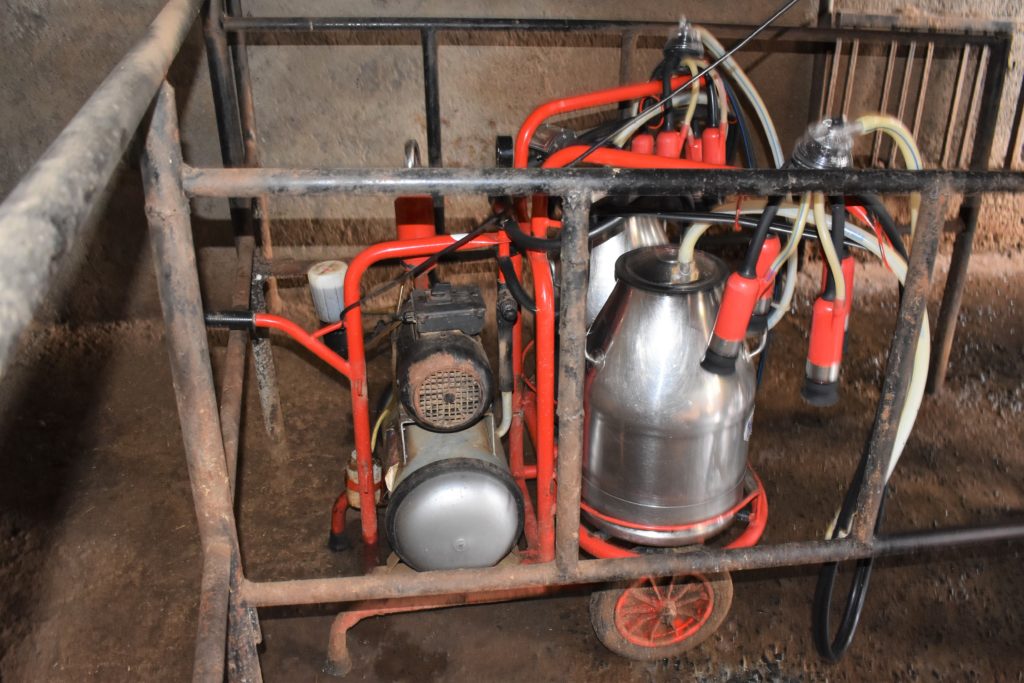
Next, we toured the 3000-acre Ngongongeri farm that is part of Egerton University outside of Nakuru in a town called Njoro. This land was left to the country of Kenya by the Egerton family to start an agricultural University. The farm is home to a dairy herd, sheep, swine, and poultry. Also included on the farm is large scale agriculture production of maize, grass hay, barley, and wheat. The University farm is also demonstrating conservation tillage on its cropland.
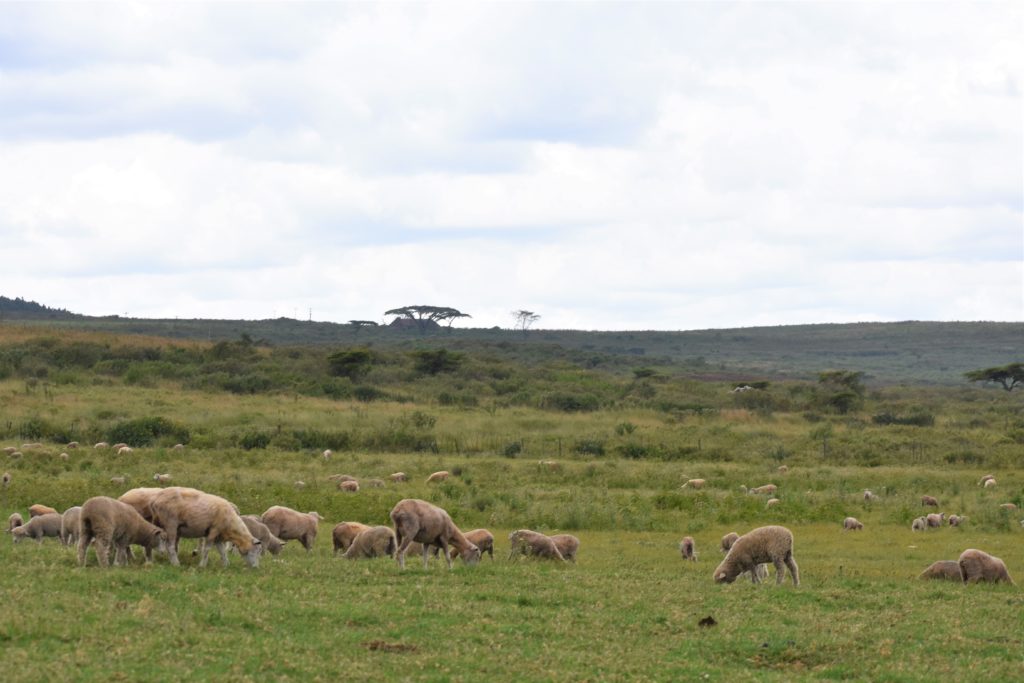
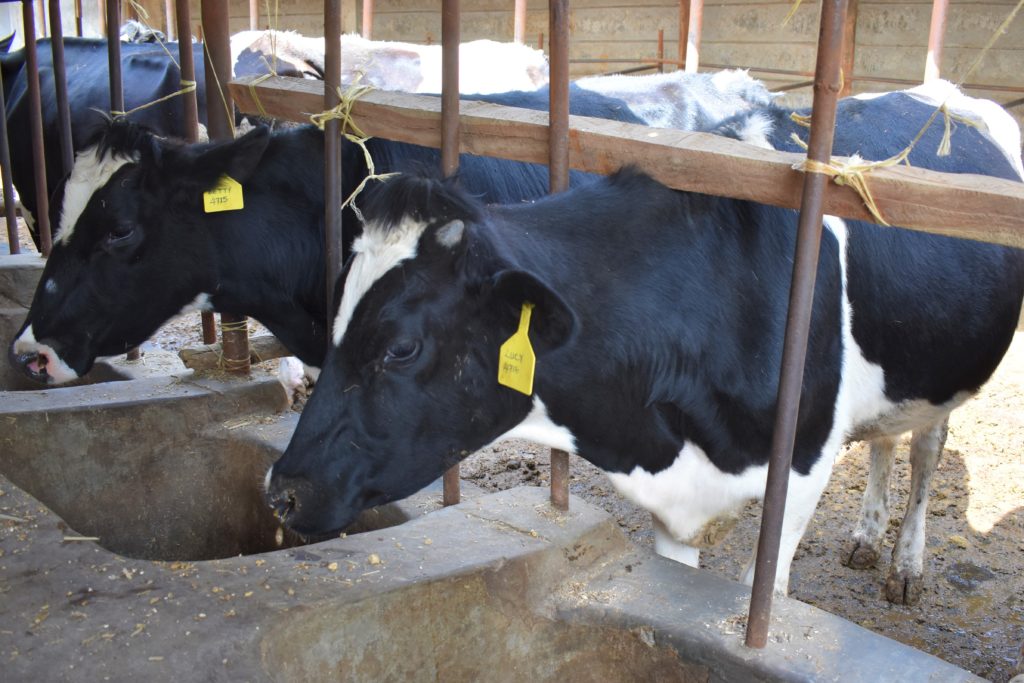
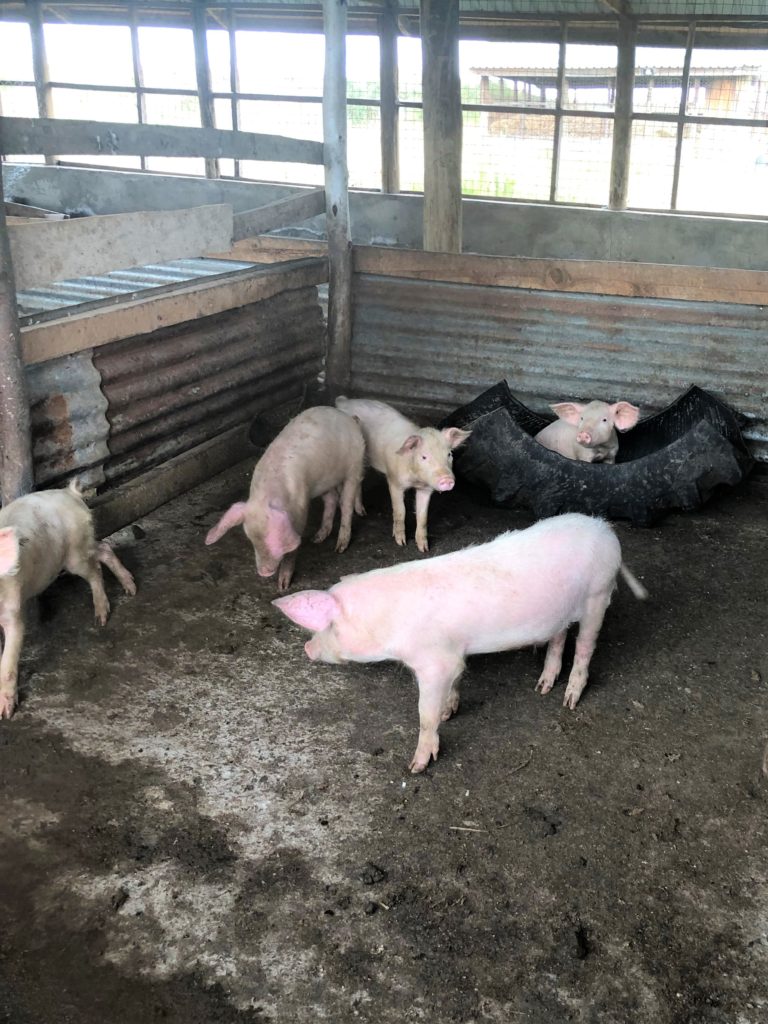
Dennis Kigiti and Victor Otieno of the Center for Livestock and Business (CFLB) led the group through a tour of their soldier fly studies and explained to the group how they are looking to fortify both human and livestock proteins with the protein supplied by the use of the soldier fly pupae.
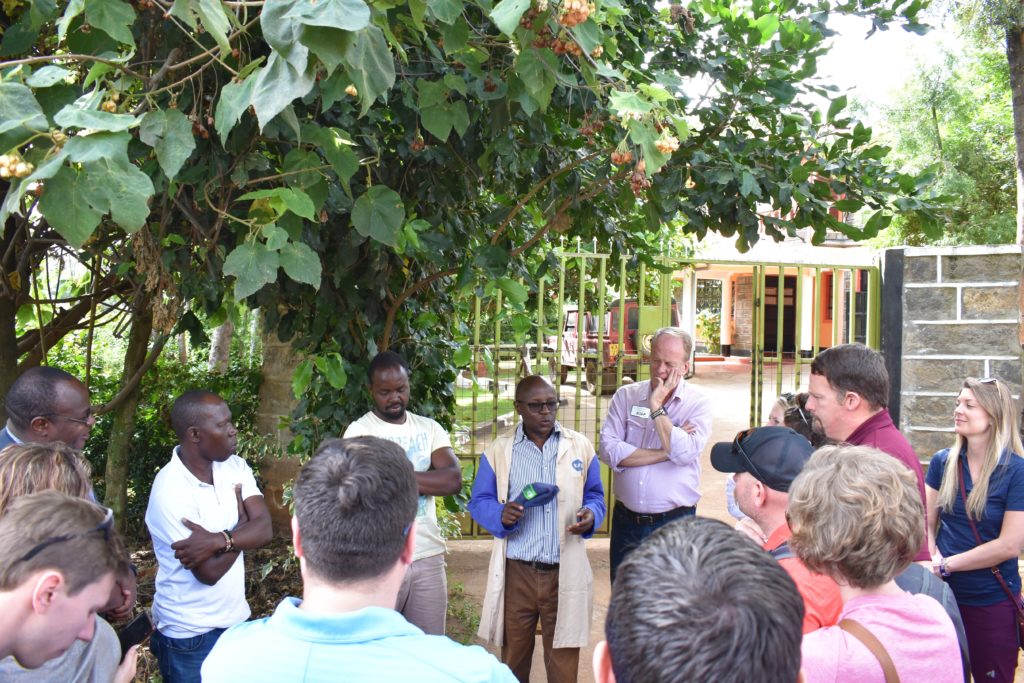
Projects like this could potentially change the landscape with a renewable and sustainable form of protein for the continent.
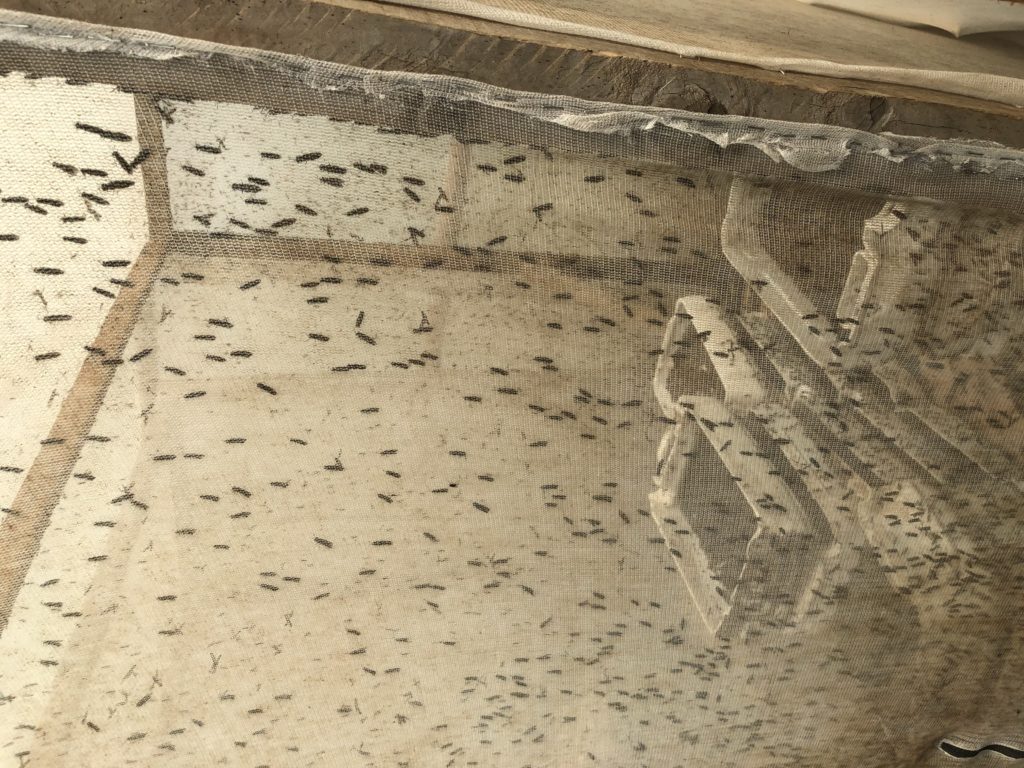
Upon leaving the CFLB, the class of 2020 was fortunate enough to be given a tour of the local Cargill grain facility by the manager and former owner Carl Tundo and his team. The facility manages multiple grains, including seed, as well as barley utilized in production at the Tusker brewery in Nairobi.
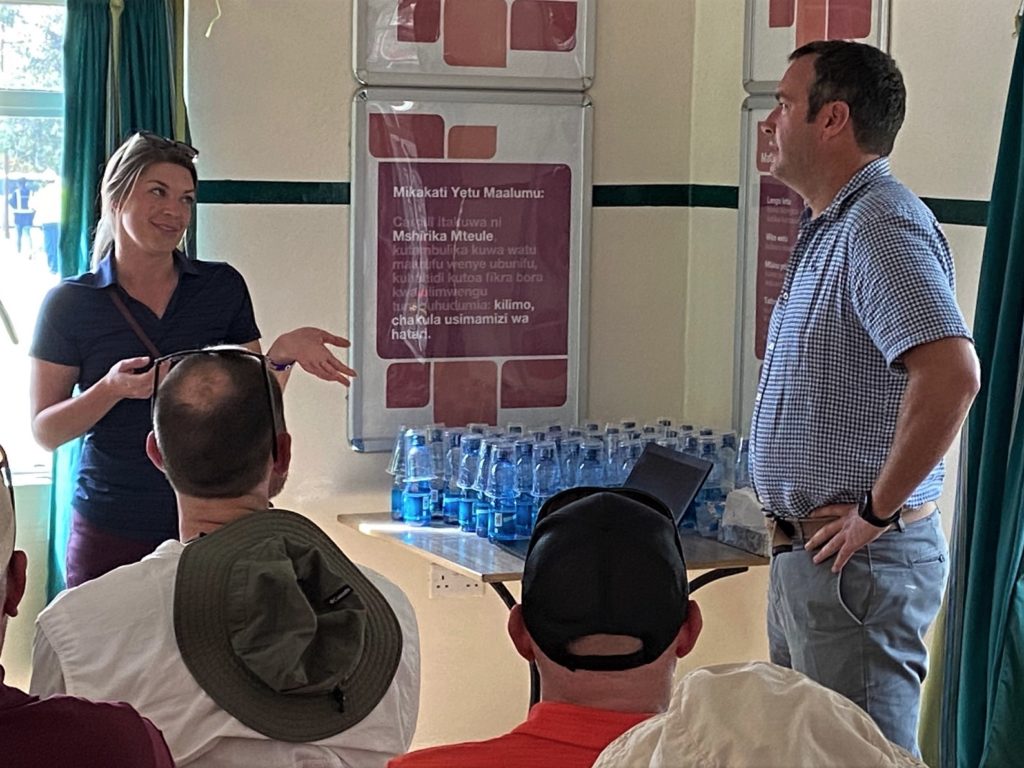
This harvest can last up to 9 months as progress is dictated by altitude. They face interesting issues when dealing with infrastructure, quality assurance, and government contracting of grain. The incoming grain trucks must wait for samples pertaining to quality, moisture, and germination, so they may have waits of several days to unload depending on their individual situation. Shane Townsend from the US Embassy/USDA rejoined the class for the farm tours and helped provide context for many of the conversations that took place.
The day was made complete with a delicious buffet meal at the Sarova Hill Game Lodge, followed by an evening sitting around a campfire on the patio sharing stories from the day.

